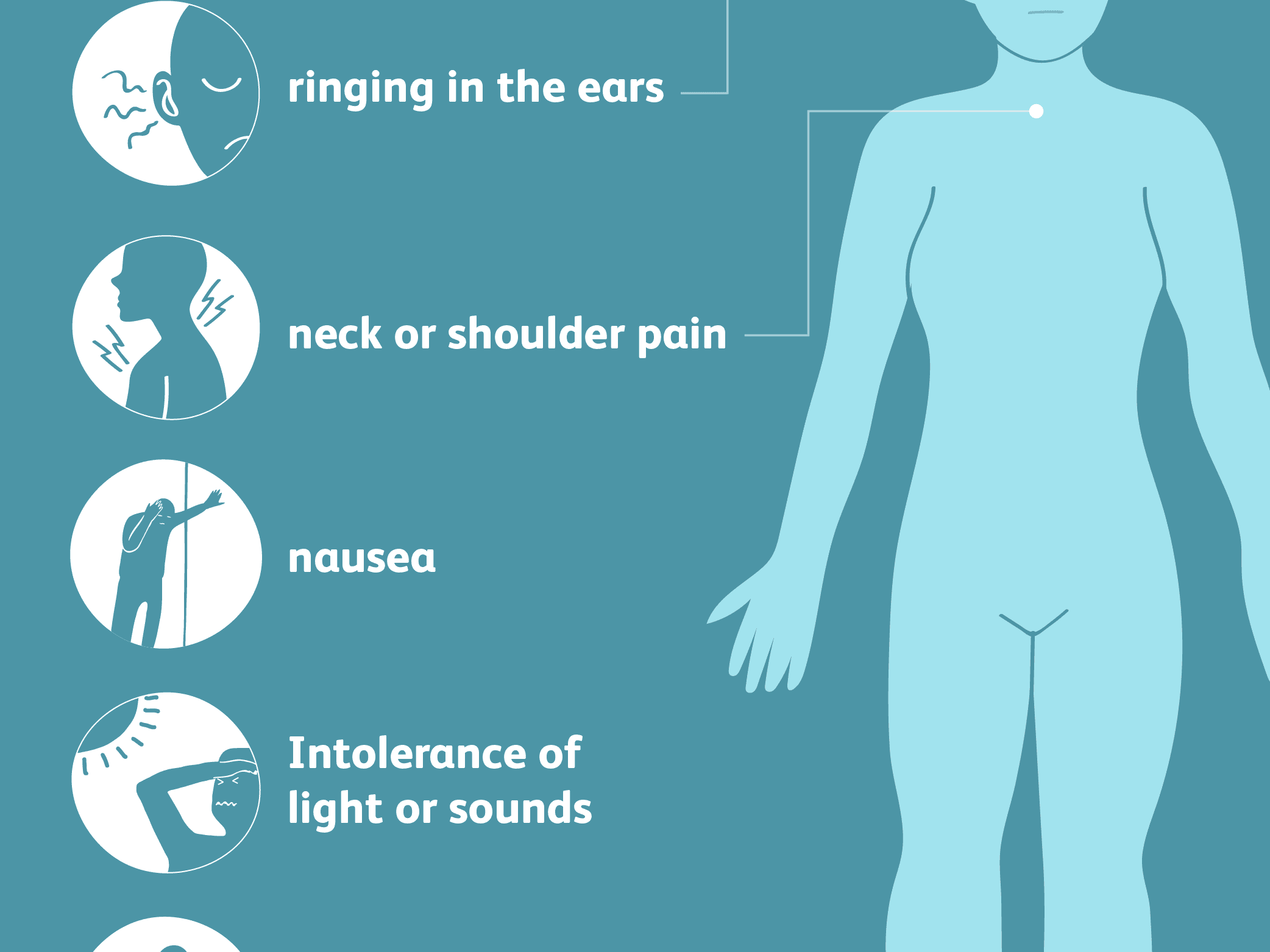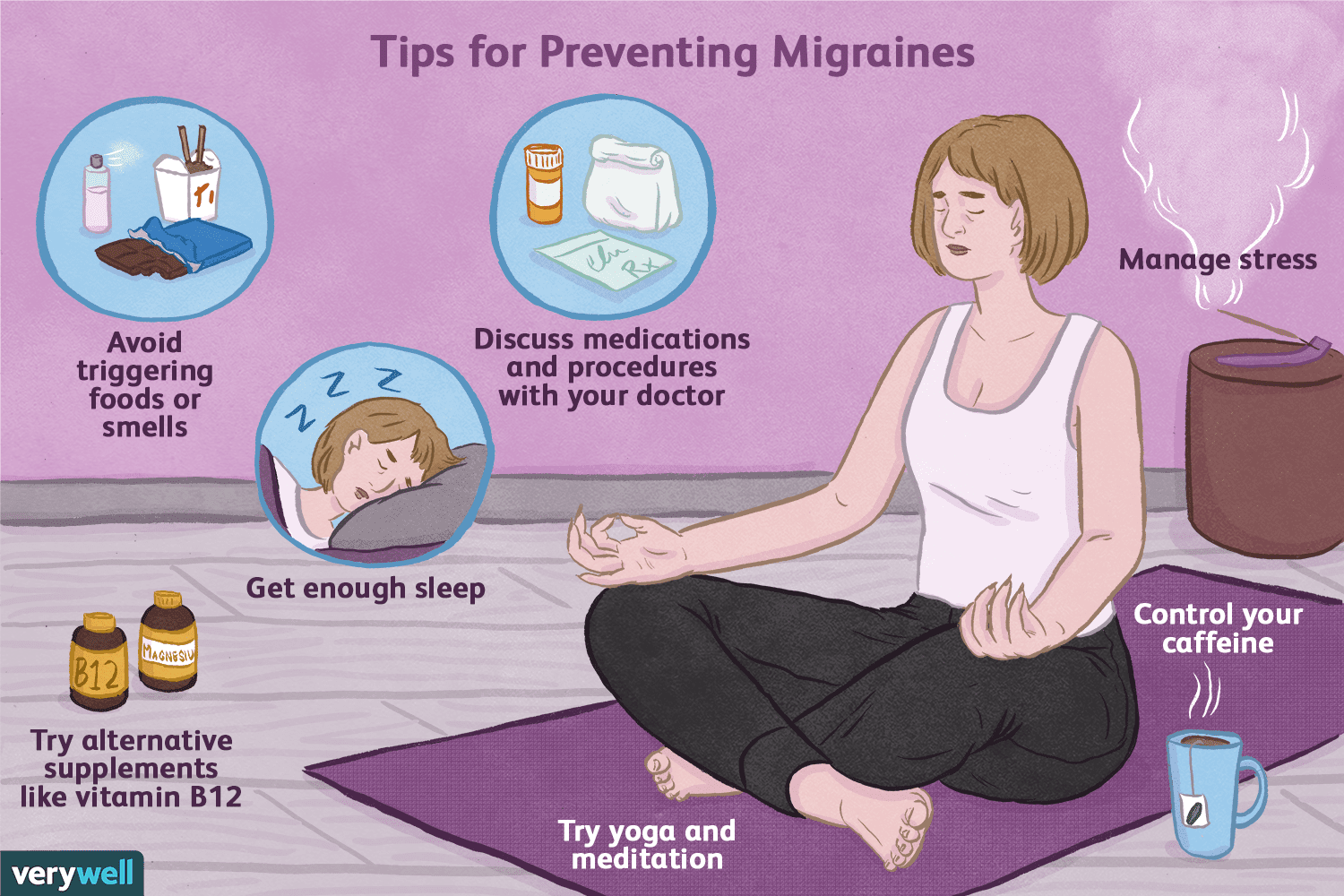
What causes migraine and how to prevent it?
Diseases
HD Medical team
on Sat, Feb 29 2020 04:21 PM
3734 Views
No recommendations yet !!!
Migraine is a severe, episodic headache, typically on one side of head often associated with nausea with or without vomiting with or without visual disturbance (Aura). It is one of the common cause of headache among the many people of the world.
What is the cause of migraine?
There are various scientific theories supposed to be the cause of migraine. Many of them suggest that it is due to inflammation of blood vessels in the head. It occurs generally in intervals and aggravated by various factors:
- Flashing lights, loud sounds, strong smell
- Oral contraceptive pills
- Hunger, fatigue
- Dietary precipitant: caffeine, alcohol, smoking, cheese, chocolate, or red wine
- Psychological stress
- Menstruation, menopause, pregnancy
- Sleep changes
What are the symptoms of migraine?
The features mentioned below are classical symptoms of migraine but some features may vary according to its types.
- Age: Occurs commonly in people less than 40 years
- It occurs is more in females than male.
- Non-specific prodromal symptoms: It may start as malaise, irritability, lassitude, drowsiness and is followed by aura & headache
- Headache
- A severe, throbbing, often unilateral headache with photophobia & vomiting.
- It may persist for several days.
- During the headache phase, patients prefer to be in a quiet, darkened room & to sleep
- Aura: It is a severe symptom complex that occurs just before the attacks of headache. It has:
- Flashing lights, silvery zigzag lines moving across the visual field over a period of 20 minutes leaving a trail of temporary visual field loss.
- Sensory aura: A spreading front of tingling & numbness from one body part to another.
- Sometimes auditory, olfactory, gustatory auras, hallucination may be present.
- Rare auras are vertigo, aphasia, hemiparesis, and delirium.

Image source: Verywellhealth.com
How can the migraine be diagnosed?
Your physician may use different diagnostic methods for labelling your headache as migrane. It is generally considered if your headache has:
At least two of following:
- Unilateral headache
- Throbbing pain
- Aggravation by movement
- Moderate to severe intensity
With any of the following:
- Nausea &/or vomiting
- Photophobia & photophobia
How can you prevent migraine?
Identification and avoidance of specific triggers, chances of migraine can be minimized. Following measures can be followed for the migraine patients:
- Reassurance and relieve of anxiety
- Avoidance of loud noises and bright light. Pay close attention to all visual and audio disturbances, and make sure you can easily avoid them if a migraine arises.
- Avoidance of triggering diets: Avoid the foods & additives that bring about a headache and try to avoid them.
- Control caffeine: Keep the caffeine intake predictable & regular. If caffeine triggers migraine then be sure to avoid caffeine products.
- Avoidance of triggering smell: Strong scents can trigger migraine. So, be sure to avoid such odors that trigger your migraine.

Image source: Verywellhealth.com
- Ice packs: Use of ice packs neck, shoulders & forehead can reduce the development of full blown migraine if you feel a migraine coming on, or if you know that you have been exposed to one of your migraine triggers.
- Avoidance of stress: Learn to control the reaction to stressful events. Relaxation techniques like meditation, yoga help in reducing stress.
- Regular exercise is an important part of a healthy lifestyle. But intense exercise can trigger headaches. Body’s response to certain activities should be noted out.
- Eating and sleeping in regular schedule: Fasting and skipping meals can trigger migraine headaches. Hunger & dehydration both causes migraine. So, stay hydrated and never skip meals. Lack of sleep can also aggravate symptoms, so get enough sleep.
- Paying attention to weather: Changes in weather may change the migraine patterns. So if the weather feels uncomfortable, minimize the time spent outdoors.
- Learning to avoid specific triggers and planning ahead are important parts in keeping migraine headaches under control. Most severe symptoms can be avoided by identifying them.
- Maintain a headache diary: It helps in identification of the migraine triggers. Also helps to identify the patterns in migraine and helps in avoiding one.
How to treat migraine during acute attack?
You can take pain killers like paracetamol and ibuprofen. Take in mind that continuous use of pain killer for long time may have severe adverse effects. For further evaluation and treatment visit the doctor who may prescribe you the medicines for long time. You must be taking medicines for the complete dose and duration as prescribed by your doctor.
When to see a doctor if you have headache?
If you have been suffering from the above mentioned symptoms, and if you suspect migraine (Simplified diagnostic criteria for migraine matches your symptoms) or the preventive measures fail to control the symptoms, consult a physician for better management.



Leave a comment